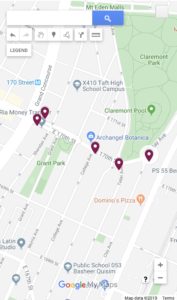 Since the year of 1950, beauty salons had populated rapidly due to grandness in women lives. Some may not notice, but many women has been involved with salons, African Americans to be exact, where there will be no diversity of beauticians. Not a lot of people will think this matters, however, this should be looked upon on because each women has the right to receive the same treatment as others. Race shouldn’t matter and hair texture shouldn’t either. Although all beauticians requires certification to own a salon, this indicates that we must have limitations of salons with beauticians who are the same race located in the same area to build a diversity. Hence, women should be able to feel comfortable while getting their hair done.
Since the year of 1950, beauty salons had populated rapidly due to grandness in women lives. Some may not notice, but many women has been involved with salons, African Americans to be exact, where there will be no diversity of beauticians. Not a lot of people will think this matters, however, this should be looked upon on because each women has the right to receive the same treatment as others. Race shouldn’t matter and hair texture shouldn’t either. Although all beauticians requires certification to own a salon, this indicates that we must have limitations of salons with beauticians who are the same race located in the same area to build a diversity. Hence, women should be able to feel comfortable while getting their hair done.
It is known for those women whose interested in cosmetology and wanting to own a salon that an cosmetology license is required. According to the beauty courses category blog it is needed to attain a license if you are indeed providing services to clients. If you decide otherwise then it’s not necessarily required. With employees it’s a different story. It states employees must be provided “… certification or licensing…that will carry out services to the clientele.” (Do I Need a Cosmetology License to Open a Salon?; 2013, Evergreen Beauty College). In other words, they will also need certification. Now I do agree that each hairdressers should have some certification of their work, however, I understand that it can be difficult for some individuals to get one. Some people aren’t able to attend cosmetology school because the cost is too pricey. There will be programs they’ll suggest for to enroll, the rooms, and textbooks you have to purchase. Another reason they are unable to attend could be they may have many responsibilities in their personal lives that they don’t have the time to do what they want. As a result, it will be overwhelming for one person to handle these tasks. Thus, if interested in the cosmetology business it is recommended to get a license.
In certain areas, there should be limited beauty salons located in the same area with the same ethnic group of hairdressers. For instance, in the Bronx there are mutual of salons owned by Latinos located near one another. On 170 Street, from Grand Concourse to Clay Avenue, there are at least four beauty salons. The video shown below shows how closely they are altogether. The Bronx is knowing of having many Latino residents. According to Zaire Cortes, she states that “54.6 percent of Bronx residents are Latino and most live in neighborhoods that are key to the development of housing and infrastructure.”(A New Bronx?; 2019, Showcasing the Best of the Community and Ethnic Media). Because much of the community are Latino residents it’s understandable why most salons are owned by them, however, it does not excuse them for not being diverse. Few investors prefer to have just a family business. That’s a great idea, although other individuals from different ethnic groups should have the opportunity to prove their skills. It’s possible very few women feels uncomfortable to obtain services from only Latinos; not because they dislike them, but because they are treated differently due to their hair texture. This can lead the salon into losing money as these women will find services somewhere else. Therefore, there should be limitations of an all Latino salons locating closely to each other.
These beauty salons needs to be culturally diverse, not only to themselves but to our community. The importance of representation is to show within the neighborhood how connected we are together. African American’s hair is one of the underrated hair there is. Not every stylist can handle our kinky, curly, textured hair. That’s why the importance of different hairstylists should be concerned to many. Black women are discriminated by their hair because it’s not as easy to simply straighten it as a style. Thompson states that “…15% of traditional stylists turns away clients who have textured hair”. ( This App Wants to Save Black Women from Stylists Ruining their Hair; 2017, Fast Company). The amount of disrespect our women are gaining is disgusting and heartbreaking. People are so cruel. Additionally, this has been happening to us for years now. We are charged more for having “challenging” hair. Do you know how upsetting it is for a black woman to be discriminated due to the texture of hair? The instant feeling we consume when we can’t achieve is the feeling of giving up. It’s exhausting to constantly be overlooked by the beauty industry, so our only two options are to wear protective hairstyles (wigs, braids, dreadlocks, etc) or wash our own hair. Honestly, the only people who understands our hair textures is ourselves which is why majority of us does that anyway. The more we do our own hair, the more we save our money. On the Upper East Side of Manhattan, every black woman knows the most populated of hair braiding salons are located on 125th Street. As soon you’re walking along the sidewalk you will see many beautiful African American women sitting outside handing out card information of their business. In short, the community needs a diverse of hairdressers to provide services for all women with different textures of hair.
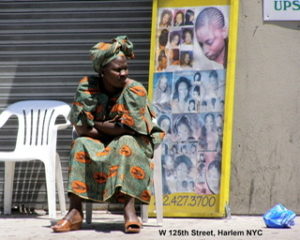
Nevertheless, many of Latino stylists will probably suggest otherwise and argue that a diversity isn’t needed because they are able to do all types of hair. The map I created shows the amount of salons on the street, but on different avenues up the block from me. When I was a freshman I attended a salon near to the one I used to go to as a child for the first time with my mom. The original price was $15 for a wash and set yet my mom had to pay $25 because my hair was so thick and I “needed” to clip my ends. After I got out the dryer, one of the beauticians told me she would do me next after she was done with a customer. Little did I know she lied and did her friend next. Thank god my mom was there to say something and got someone else to finish my hair. Now I do my own hair so I won’t have to go through that again. To conclude, the community needs to do a better job of treating others which is why we need to be culturally diverse so all of us can work with one another.





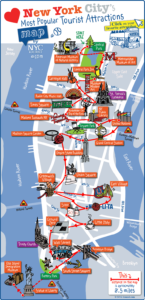



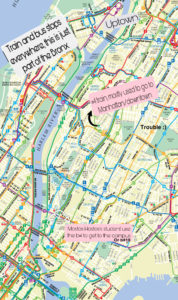
 Sterling Price, shows the average of money a household spends annually. It states that “20% of households regularly pay for some form of public transportation, about $225 per month” (Price). This is just the amount of money used for public transportation, money that can be used for some other expenditures. Being aware that for most low-income New Yorkers having 225 dollars monthly can be of good subsistence at the time to buy either food or pay bills. The Incorporation also claims that “for the average household, transportation costs are almost as much as what’s spent on rent or the direct costs of homeownership: an average of $2,000 annually” (Price). If we take into account, a low-income earn a minimum of $15,000 a year when there is just one household and a maximum of $39,500 if there is more than one, those $2,000 could be utilized for other needs. What I am trying to state is, while low-incomes spend around $4,000 on food, $2,100 on utilities, add $150 – $200 monthly= up to $2,000 annually for electricity and if you want plus $60 – $150= up to $1,200 on internet/cable or electronics (cellphones), with the $2,000 in transportation is already $11,300, almost what one household low-income makes a year. Even when it may be seen that it’s required to pay for the fare when it adds up it can become a reasonable amount for some residents who have other needs to address, but hey watch out because the ticket for not paying the fare is more expensive.
Sterling Price, shows the average of money a household spends annually. It states that “20% of households regularly pay for some form of public transportation, about $225 per month” (Price). This is just the amount of money used for public transportation, money that can be used for some other expenditures. Being aware that for most low-income New Yorkers having 225 dollars monthly can be of good subsistence at the time to buy either food or pay bills. The Incorporation also claims that “for the average household, transportation costs are almost as much as what’s spent on rent or the direct costs of homeownership: an average of $2,000 annually” (Price). If we take into account, a low-income earn a minimum of $15,000 a year when there is just one household and a maximum of $39,500 if there is more than one, those $2,000 could be utilized for other needs. What I am trying to state is, while low-incomes spend around $4,000 on food, $2,100 on utilities, add $150 – $200 monthly= up to $2,000 annually for electricity and if you want plus $60 – $150= up to $1,200 on internet/cable or electronics (cellphones), with the $2,000 in transportation is already $11,300, almost what one household low-income makes a year. Even when it may be seen that it’s required to pay for the fare when it adds up it can become a reasonable amount for some residents who have other needs to address, but hey watch out because the ticket for not paying the fare is more expensive.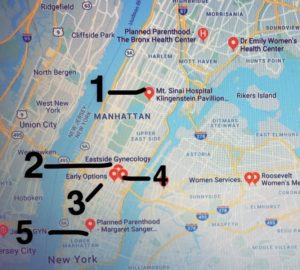


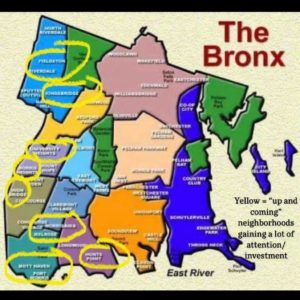
 Below is a photo of what the borough once was, an eerie image of debris and abandonment. From this rubble emerged the soul of The Bronx; from this unsightly war zone rose a resilient people. Creativity thrived where opportunity was missing and this is the backbone of Bronx culture; to make something outstanding and groundbreaking out of absolutely nothing. It is this resilience and perseverance that cannot be mimicked by new developers and outsiders hoping to claim this land as their own. If the people of The Bronx are forced to leave its streets, the culture and authenticity of this borough will surely be taken with them.
Below is a photo of what the borough once was, an eerie image of debris and abandonment. From this rubble emerged the soul of The Bronx; from this unsightly war zone rose a resilient people. Creativity thrived where opportunity was missing and this is the backbone of Bronx culture; to make something outstanding and groundbreaking out of absolutely nothing. It is this resilience and perseverance that cannot be mimicked by new developers and outsiders hoping to claim this land as their own. If the people of The Bronx are forced to leave its streets, the culture and authenticity of this borough will surely be taken with them.
